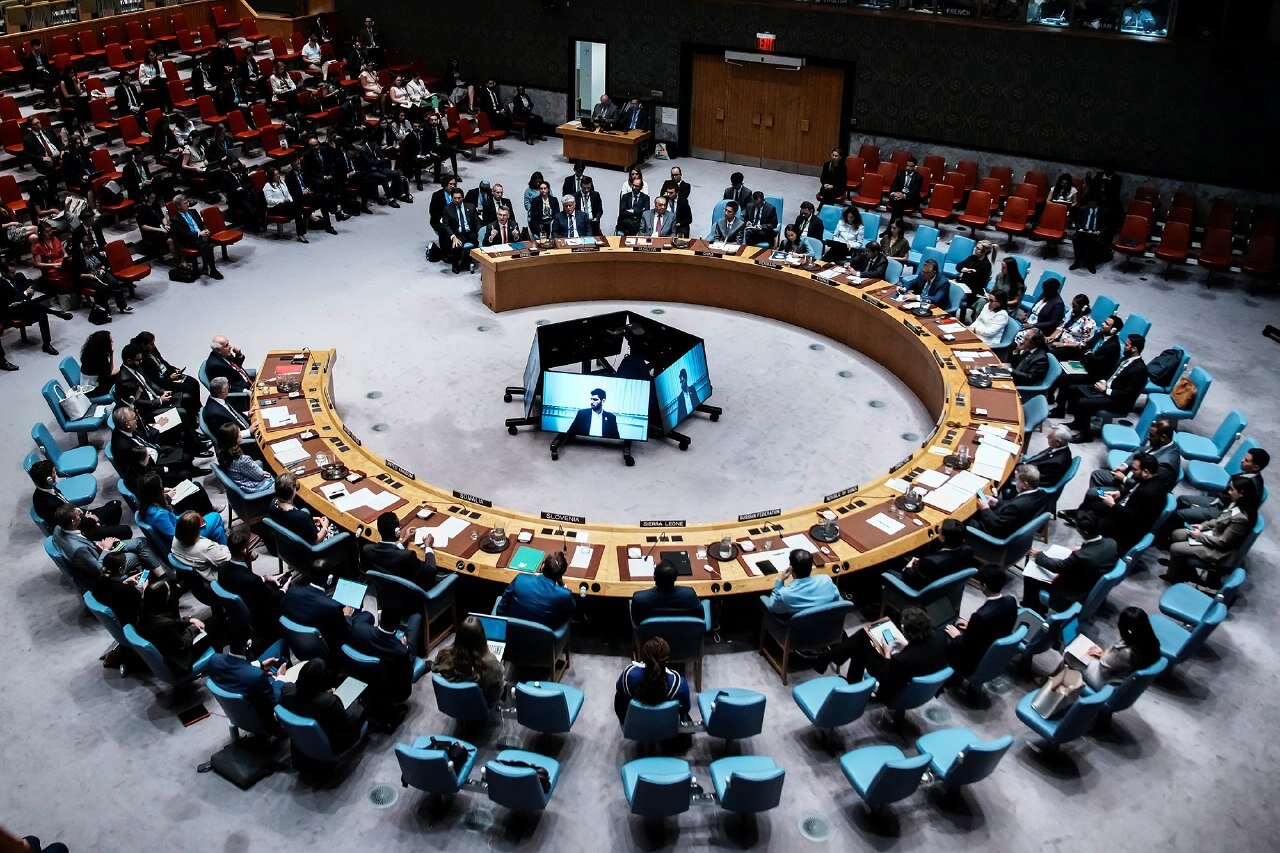Another blow to diplomacy
E3 tells UNSC it’s triggering ‘snapback’ to reinstate UN sanctions against Iran, Tehran says it will respond

TEHRAN – When Iranian President Masoud Pezeshkian was vying for the presidency last year, his willingness to give diplomacy with the West another chance was his main point of distinction from his conservative rival, Saeed Jalili, who has likened negotiating Iran's nuclear program with the West to the biblical story of the Israelites worshipping a "golden calf." Perhaps Iranians voted for Pezeshkian because they believed a diplomatic solution with the West was still possible.
However, the West's actions over the past 12 months have made it increasingly difficult for Pezeshkian to defend this diplomatic approach and for the Iranian people to believe the West can be trusted.
President Pezeshkian came into office in August 2024, a time when Iran had already spent the past four years trying in vain to revive the 2015 nuclear deal it had signed with the P5+1 nations (the U.S., UK, France, China, Russia, and Germany).
The United States dismantled the agreement, known as the Joint Comprehensive Plan of Action (JCPOA), by withdrawing from it in 2018. The JCPOA limited Iran's nuclear activities in exchange for the lifting of economic sanctions. Believing the deal was "weak," President Trump initiated a "maximum pressure" campaign of intensified economic sanctions to force Iran into negotiating a new agreement. After Trump left office, Iran attempted to revive the deal under the Biden administration. The U.S. abandoned the talks in 2022, allegedly after concluding that the riots which had convulsed Iran at the time would lead to the Islamic Republic's downfall.
Following this long saga, and despite significant skepticism within Iran's political ranks, Pezeshkian began indirect talks with the second Trump administration in 2025. Conservatives in Iran's parliament called him "naive" for believing discussions with Washington could come to fruition. "Americans have proven they cannot be trusted. Why are we talking to them again?" one MP from Tehran argued when the Omani-mediated talks were first announced in late March.
The Pezeshkian administration attended five rounds of indirect talks with Washington in April and May. In meetings with journalists and in public, Iranian diplomats stated their position was straightforward: as a member of the Nuclear Non-Proliferation Treaty (NPT), Iran should be allowed to enrich uranium for civilian purposes. But it was willing to provide assurances to the West that it would not pursue nuclear weapons if sanctions were lifted.
But on June 13, just as Iran was preparing to attend a sixth round of talks after finalizing the time and location with the Americans, a 12-day US-Israeli bombing campaign was unleashed. The attacks inflicted significant damage on three Iranian nuclear sites and killed over a thousand Iranians.
The war changed reality on the ground for many, especially ordinary people. Those who had once celebrated Javad Zarif’s return to Tehran after he negotiated the JCPOA in Vienna now grew bitter and hopeless whenever the topic of a new deal arose. “How can you attack a country in the middle of negotiations?” asked one Tehrani man who had fled the city with his family during the war. “Do negotiations even mean anything to the West? I guess not.”
Even after the war, however, Pezeshkian’s government kept the door open for dialogue. Just last month, Foreign Minister Abbas Araghchi stated that returning to talks “depends entirely on the national interest.” Many interpreted this as a signal that Iran remained open to assuring the West it would not pursue nuclear weapons—so long as its right to uranium enrichment was respected, a position the country has maintained for over two decades.
Yet instead of seizing this chance to return to diplomacy after a war that yielded no victory, the West chose another path. This week, it decided to deal another blow to negotiations by activating the so-called “snapback” mechanism.
The JCPOA's "snapback" mechanism allows signatories to reinstate UN sanctions that had been lifted under the deal if they find Iran non-compliant. Europe had threatened to trigger this mechanism since last year in response to Iran's abandonment of some commitments. Iran, however, argued it only scaled back its obligations after the U.S. left the deal and Europe failed to mitigate the impact of U.S. sanctions. Following the American and Israeli strikes on Iran’s nuclear facilities, Europe's move to use the mechanism against now-inactive sites appeared even more ridiculous.
Nonetheless, France, Germany, and the U.K. sent a letter to the UN Security Council on Thursday announcing their decision to re-impose UN sanctions. Although the notification does not mean sanctions are immediately reinstated (there is a 30-day period to stop or extend the process) the move has already provoked anger in Tehran and deepened distrust of diplomatic engagement with the West within both the Pezeshkian administration and the Iranian public.
In a phone call with EU foreign policy chief Kaja Kallas, Araghchi condemned the decision: “You have taken an illegal and unjustified step. This move deepens doubts about the true intentions of Europe and adds further obstacles to diplomatic efforts.” He added that Tehran would take proportionate action in response to the “provocative and inappropriate” measure.
It remains unclear how Iran will react to the potential reinstatement of UN sanctions; reported options include withdrawing from the NPT or suspending all cooperation with the IAEA. One outcome is guaranteed, however: even if the new sanctions have little practical impact, they will forever end Europe’s role in Iran’s nuclear program
“The activation of the snapback mechanism will neither destroy Iran's economy nor its internal unity,” an Iranian source with knowledge of the matter told the Tehran Times. “But it will certainly destroy the negotiations.”
Leave a Comment